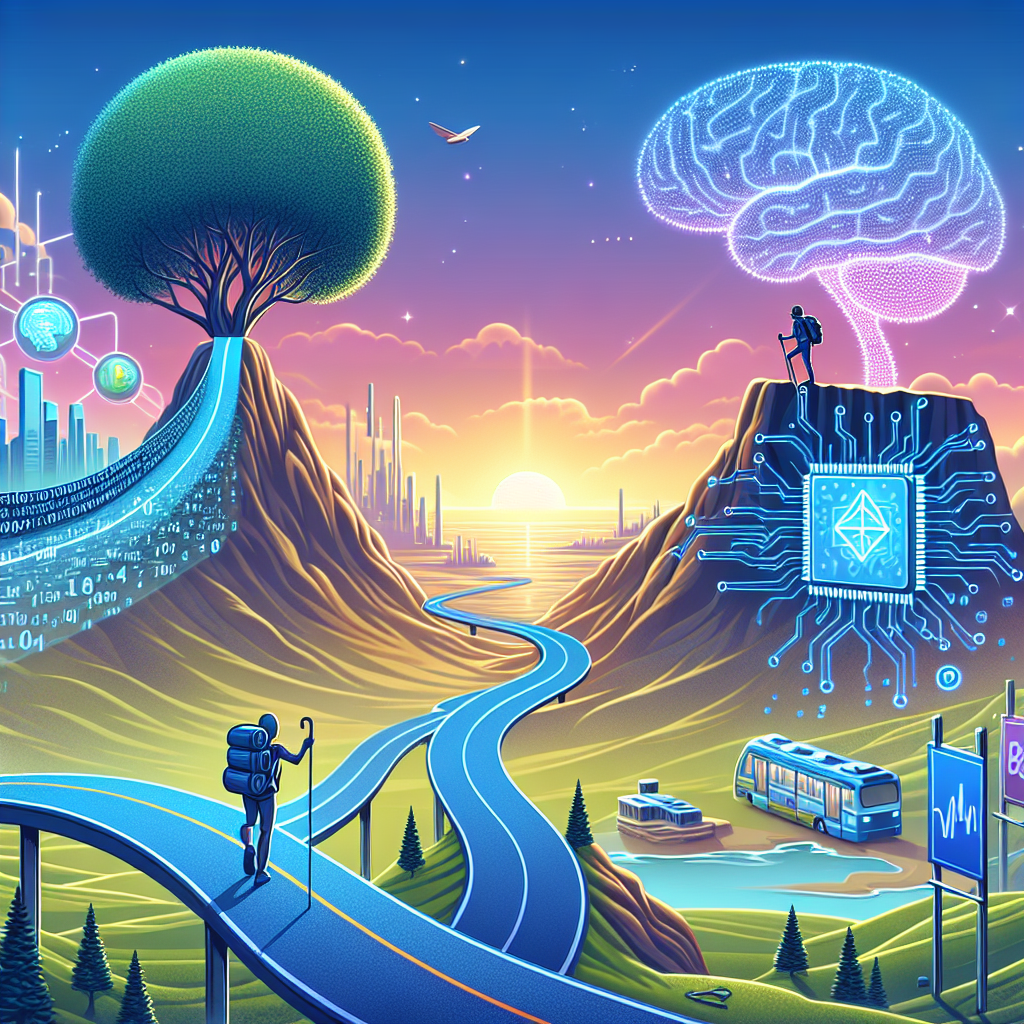The Road to AGI: Breakthroughs and Setbacks in the AI Revolution
Artificial General Intelligence (AGI) is the holy grail of the AI field – a system that can understand, learn, and apply knowledge in a way that is indistinguishable from human intelligence. While we have made significant progress in the field of artificial intelligence over the past few decades, achieving AGI remains a daunting challenge. In this article, we will explore the breakthroughs and setbacks that have shaped the AI revolution and discuss the road ahead towards AGI.
Breakthroughs in AI
The field of AI has seen numerous breakthroughs over the years that have brought us closer to achieving AGI. One of the most significant breakthroughs was the development of deep learning algorithms, which have revolutionized the way we approach AI tasks. Deep learning algorithms, inspired by the structure of the human brain, are able to learn from large amounts of data and make decisions based on patterns and trends.
Another major breakthrough in AI is the development of reinforcement learning algorithms, which enable AI systems to learn through trial and error. By rewarding the system for making correct decisions and penalizing it for making mistakes, reinforcement learning algorithms can train AI systems to perform complex tasks such as playing games or driving cars.
Recent advances in natural language processing have also been a major breakthrough in AI. Systems such as OpenAI’s GPT-3 are able to generate human-like text and have a deep understanding of language. This has opened up new possibilities for AI applications in fields such as customer service, content generation, and language translation.
Setbacks in AI
While there have been many breakthroughs in AI, there have also been significant setbacks that have slowed down progress towards AGI. One of the biggest challenges facing the field of AI is the issue of bias in AI systems. AI systems learn from the data they are trained on, and if this data is biased, the AI system will also be biased. This can lead to unfair outcomes, such as discrimination in hiring or lending decisions.
Another major setback in AI is the issue of interpretability. Deep learning algorithms are often referred to as “black boxes” because it is difficult to understand how they arrive at their decisions. This lack of transparency can be a barrier to adoption in fields where decisions need to be explainable, such as healthcare or finance.
Finally, there are ethical concerns surrounding the development of AGI. As AI systems become more powerful and autonomous, there is a risk that they could be used for malicious purposes or inadvertently cause harm. Ensuring that AI systems are developed and used in a responsible and ethical manner is a critical challenge facing the AI community.
The Road Ahead
Despite the challenges facing the field of AI, there is still much optimism about the potential of AGI. Researchers are actively working on addressing the issues of bias, interpretability, and ethics in AI systems. New approaches, such as adversarial training and explainable AI, are being developed to make AI systems more transparent and accountable.
In addition to technical challenges, there are also social and economic implications of AGI that need to be considered. As AI systems become more advanced, there is a risk that they could replace human workers in many industries, leading to widespread unemployment. Addressing these concerns will require collaboration between policymakers, researchers, and industry stakeholders.
FAQs
Q: How close are we to achieving AGI?
A: While we have made significant progress in the field of AI, achieving AGI remains a distant goal. It is difficult to predict when we will achieve AGI, as there are many technical and ethical challenges that need to be addressed.
Q: What are the ethical considerations surrounding AGI?
A: There are many ethical considerations surrounding the development of AGI, including issues of bias, interpretability, and autonomy. Ensuring that AI systems are developed and used in a responsible and ethical manner is a critical challenge facing the AI community.
Q: What are some potential applications of AGI?
A: AGI has the potential to revolutionize many industries, including healthcare, finance, and transportation. AI systems with human-like intelligence could assist doctors in diagnosing diseases, help financial analysts make better investment decisions, and drive cars more safely than human drivers.
Q: How can we ensure that AGI is developed responsibly?
A: Ensuring that AGI is developed responsibly will require collaboration between policymakers, researchers, and industry stakeholders. Establishing guidelines for the ethical development and use of AI systems, as well as implementing mechanisms for accountability and transparency, will be key to ensuring that AGI benefits society as a whole.
In conclusion, the road to AGI is fraught with challenges, but also filled with promise. By addressing the technical, ethical, and social implications of AGI, we can harness the power of AI to create a better future for all. The journey towards AGI will require collaboration and innovation, but the potential rewards are well worth the effort.

